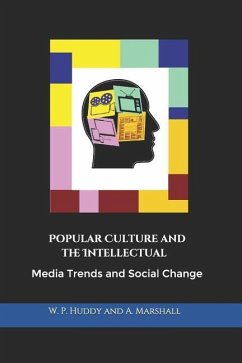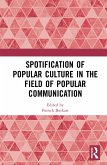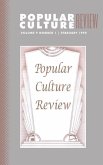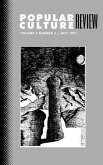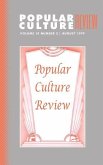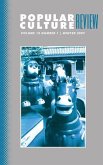This book explores key questions about the role of intellectuals in popular culture. It also investigates the tensions and oppositions between entertainment, information, and education in films, television, news, and online productions. The authors of this edited volume rely on interdisciplinary approaches to bridge gaps in the often-binary debate about the value of mass-market media. They address the many transformations, both in the media industry and in society, that content producers, practitioners, critics, journalists, and scholars enable. The following questions are addressed: - What opportunities exist for celebrities and scholars to question social and media industry narratives and to act as activists?- Where can we situate social justice activism in film studies, and what are the historical roots of actress activism in patriarchal-capitalist Hollywood?- To what extent can reality television serve as public pedagogy, and could their presenters and cast members be considered intellectuals?- What kind of institutional constraints are imposed on media and news reporting?- Is there a beneficial middle ground between popular journalistic writing about movies and academic film criticism?- Is the intertwining of politics and entertainment helping the healthy functioning of democracy, and does it contribute to better awareness and knowledge of political issues by citizens?- How are socioeconomic and gender activism, social representations, media power relations, and self-reflexive provocation articulated in both film production and criticism?- How can filmmakers and film scholars resist Hollywood conventions and act as activists who influence the casting process, gender politics, and performance conventions?- Are movies constructing and supporting a conservative narrative of gender, one that revolves around white masculinity and heteronormative gender expectations?- How are celebrity and intellectual cultures affecting news reporting across television genres?- How do journalists perceive the role of university professors in the media and how do academics perceive their roles in television programs?- Given a fragmented audience, democratized reviewing platforms, and algorithm-driven rankings, what is the role of professionally trained critics?- What are the fundamental film language elements of online user-generated videos, and could thismedia permeate film and television production in the near future?- How do journalists negotiate their roles as 'gatekeepers' and professionals in an open, de-professionalized, and inherently participatory news environment
Hinweis: Dieser Artikel kann nur an eine deutsche Lieferadresse ausgeliefert werden.
Hinweis: Dieser Artikel kann nur an eine deutsche Lieferadresse ausgeliefert werden.

